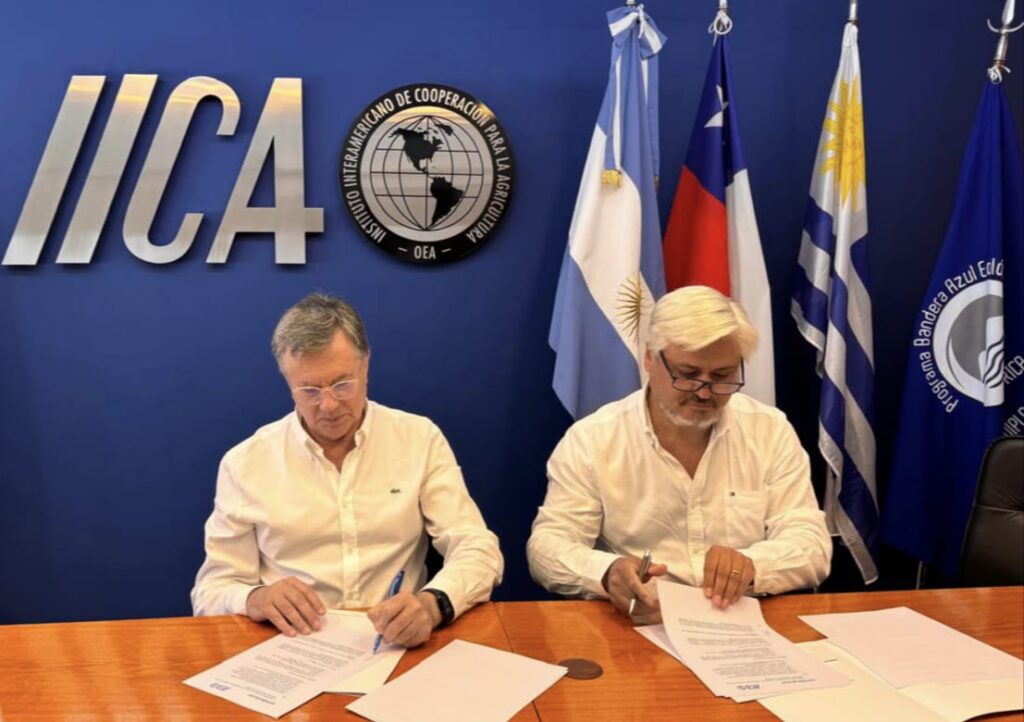Prevención y capacitación, reproducción y genética, y métodos de control serán los tres ejes principales de una estrategia global en cuyo diseño participó el IICA.

San José, 21 de enero de 2020 (IICA) – El Instituto Interamericano de Cooperación para la Agricultura (IICA), empresas frutícolas, asociaciones de productores, universidades y otros actores del sector agrícola liderados por Bayer Crop Science implementarán una estrategia global de acciones tangibles para enfrentar la plaga del banano Fusarium R4T, que afecta la producción y el comercio del cuarto mayor cultivo del mundo.
Las áreas de esta estrategia serán prevención y capacitación, reproducción y genética, y mecanismos de control, según se definió en una reunión en Alemania, en la que participó el IICA.
El componente de prevención y capacitación estará enfocado en fortalecer la relación entre la industria, las organizaciones no gubernamentales, los compradores y los oficiales de extensión. También se desarrollará un modelo de enseñanza que implementará programas piloto en cada región donde está presente la enfermedad del banano.
Sobre la segunda área, se evaluarán procesos y programas de reproducción para mejorar su eficiencia. También se abastecerá de germoplasma a investigadores para que realicen experimentos y se difundan sus hallazgos entre los interesados.
En la tercera área de trabajo se realizarán ensayos con los productos de Bayer para probar su eficacia, se explorarán las relaciones entre nutrición, suelo y eficacia de los agentes de control, y se desarrollarán herramientas de rápida aplicación para evaluar la presencia del hongo en las plantaciones de banano.
“El IICA estará a cargo de la coordinación de un programa mundial con acciones adaptadas para cada país, región y continente; y serán apoyadas por donantes que garanticen los recursos para el combate efectivo a esta plaga”, dijo Gabriel Rodríguez, gerente de Proyectos del organismo internacional.
El Fusarium R4T presenta casos recientes en varias partes del mundo (en América Latina se detectó su presencia en Colombia). Provoca síntomas de marchitez y la muerte en las plantas, además permanece por largo tiempo en el suelo, por lo que es difícil su manejo.
Datos sobre Fusarium R4T
• Se propaga, principalmente, por el movimiento de material de siembra en las partículas de suelo que se adhieren al calzado de las personas, las herramientas y los vehículos, y mediante el agua de escorrentía o riego que arrastra el hongo de un sitio a otro.
• Una vez que el hongo se introduce en el sistema vascular de las plantas se desencadena un colapso en su mecanismo de transporte de agua y nutrientes, lo que afecta su fotosíntesis y les provoca la muerte. A la fecha no existe un control químico, biológico o genético para contrarrestar la acción patogénica.
• No existe un tratamiento totalmente efectivo viable de suelo o plantas para controlar o curar el marchitamiento por Fusarium en el terreno. El hongo en esporas en el suelo permanece activo durante décadas. La única medida preventiva disponible en la actualidad es la cuarentena, previniendo la transferencia de tierra afectada o material vegetal de zonas infectadas a zonas libres de Fusarium R4T.
Más información:
Gabriel Rodríguez Marqués, Gerente de proyectos del IICA.










